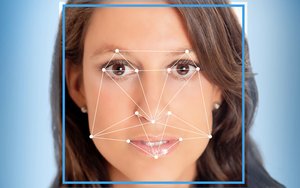 Requiring online photo services to follow an Illinois privacy law regarding "faceprints" would be unconstitutional, Google argues in new court papers.
Requiring online photo services to follow an Illinois privacy law regarding "faceprints" would be unconstitutional, Google argues in new court papers.
"Illinois
legislators cannot decide policy for the rest of the world," Google says in a motion filed Wednesday with U.S. District Court Judge Edmond Chang in Illinois.
The company makes the argument as
part of a bid to convince Chang to dismiss a potential class-action lawsuit centered on Google Photos. The legal dispute dates to March, when Illinois resident Lindabeth Rivera alleged that Google
Photos unlawfully stores faceprints of "millions" of other state residents. A second resident, Joseph Weiss, filed a similar lawsuit, which was consolidated with Rivera's.
They accuse Google
of violating the Illinois Biometric Information Privacy Act, which requires companies to obtain written releases from people before collecting certain biometric data, including scans of face geometry.
That measure, passed in 2008, also requires companies that gather biometric data to notify people about the practice, and to publish a schedule for destroying the information.
Rivera said in
her complaint that she doesn't have a Google Photos account, but that photos of her were uploaded to the service after they were taken by someone else. Google "analyzed these photos by automatically
locating and scanning plaintiff’s face, and by extracting geometric data relating to the contours of her face and the distances between her eyes, nose, and ears -- data which Google then used to
create a unique template of Plaintiff’s face," she alleges.
Weiss says he has a Google Photos account and uploaded 21 photos of himself. He says Google used data from those photos to
create a faceprint of him.
Google says the case should be dismissed for several reasons, including that the Illinois law says it excludes "photos" from the definition of "biometric
identifiers." A separate definition of "biometric information" appears to go further by also excluding any information derived from photos.
Two other judges in lawsuits against Facebook and
Shutterfly have rejected that argument. Most recently, U.S. District Court Judge James Donato in San Francisco ruled in May that consumers could proceed with a lawsuit alleging that Facebook violated
the Illinois law with its automatic photo-tagging feature. That tool draws on Facebook's database of "faceprints" to recognize users' faces and suggest their names when they appear in photos uploaded
by their friends.
Facebook contended that the Illinois law only covers "face geometry" when it's based on something other than photos, like in-person scans.
Donato said that argument
was inconsistent with the law's purpose.
Google is now saying that Donato's decision is incorrect and shouldn't be followed. Among other reasons, the company says that it has no way of knowing
whether a photo depicts an Illinois resident. Therefore, Google says, applying the Illinois law to photos "would effectively regulate conduct having no connection to Illinois."
Google says
this result would be unconstitutional because only Congress can regulate interstate commerce.
"Effectively, one would have to comply with BIPA whenever there is a mere possibility that a photo
implicates Illinois. This would result in the extension of BIPA well beyond Illinois’ borders, to conduct occurring wholly outside the state, because many such photos will in fact have no
connection to Illinois at all."
Chang is expected to hold a status hearing in the case on May 24.